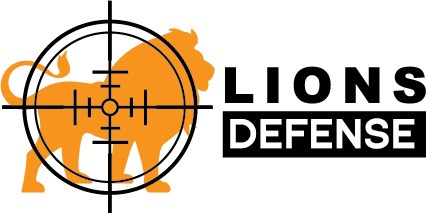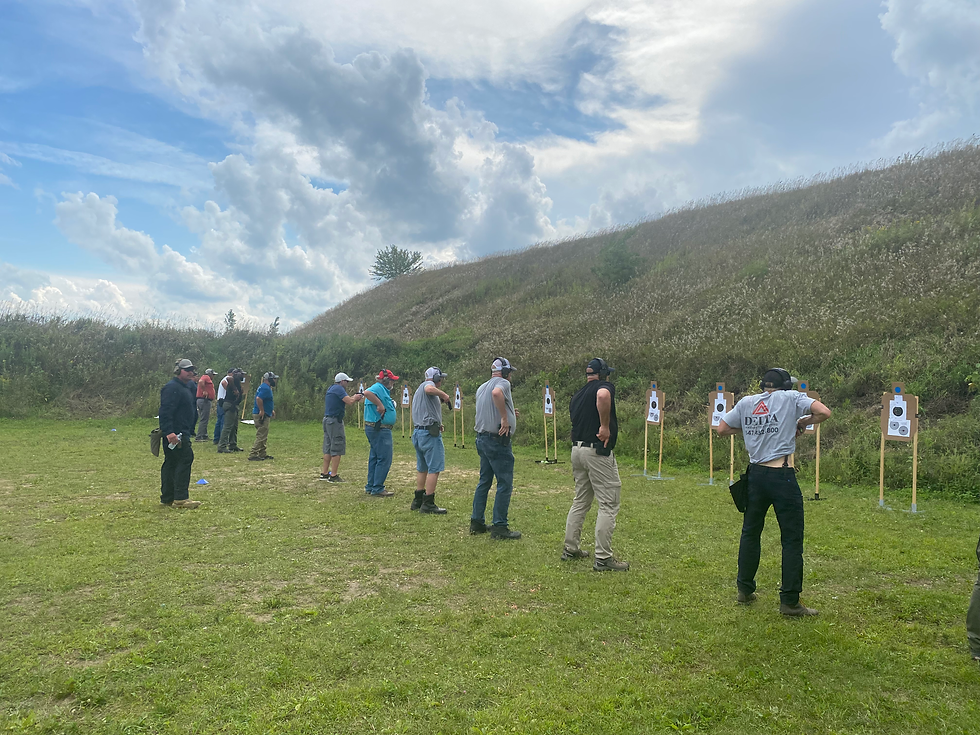Achieve Licensing Success with Comprehensive CCL Classes
- Lions Defense

- Oct 13, 2025
- 4 min read
Obtaining a concealed carry license is a significant step for many individuals seeking to responsibly carry a firearm for personal protection. The process can seem daunting without the right guidance and preparation. Comprehensive concealed carry licensing courses provide the essential knowledge and skills needed to navigate the legal requirements and practical aspects of carrying a concealed weapon safely and confidently.
Understanding the Importance of Concealed Carry Licensing
Concealed carry licensing is more than just a legal formality. It ensures that individuals who carry firearms in public are educated about the laws, safety protocols, and ethical responsibilities involved. These licenses are issued by state authorities and often require applicants to complete a certified training course.
A well-structured concealed carry licensing course covers topics such as firearm safety, proper handling, storage, and the legal implications of using a weapon in self-defense. This education helps reduce accidents and misuse, promoting safer communities.
For example, many states require applicants to demonstrate proficiency in firearm handling and knowledge of local laws before issuing a license. This ensures that license holders are prepared to act responsibly under pressure.

Key Components of Effective Concealed Carry Licensing Courses
When selecting a concealed carry licensing course, it is important to look for comprehensive content that covers both theory and practical skills. Here are the essential components:
Legal Education: Understanding state and federal laws regarding concealed carry, use of force, and self-defense.
Firearm Safety: Proper handling, loading, unloading, and storage techniques.
Marksmanship Training: Basic shooting skills, accuracy, and safe operation of the firearm.
Scenario-Based Training: Realistic situations to practice decision-making under stress.
Ethical Considerations: When and how to use a firearm responsibly.
Courses that combine classroom instruction with live-fire exercises provide the best preparation. This hands-on experience builds confidence and competence.
Many providers also offer post-course support, such as refresher classes and legal updates, which are valuable for maintaining proficiency and staying informed about changes in laws.

How much do CCL classes typically cost?
The cost of concealed carry licensing courses varies depending on location, course length, and included materials. On average, prices range from $50 to $200. Some factors influencing cost include:
Course Duration: Longer courses with more in-depth training tend to be more expensive.
Instructor Experience: Certified and highly experienced instructors may charge higher fees.
Included Materials: Some courses provide firearms, ammunition, and training manuals, which can affect the price.
Location: Urban areas may have higher costs due to facility fees and demand.
It is important to balance cost with quality. Cheaper courses may lack comprehensive training or certified instructors, which can impact your readiness and legal compliance.
For those looking for a reliable option, consider enrolling in ccl classes that offer a blend of expert instruction and practical exercises at a reasonable price.

Tips for Choosing the Right Concealed Carry Licensing Course
Selecting the right course can make a significant difference in your licensing success and overall preparedness. Here are some actionable tips:
Verify Certification: Ensure the course is recognized by your state’s licensing authority.
Check Instructor Credentials: Look for instructors with law enforcement or military backgrounds.
Read Reviews: Feedback from past students can provide insight into course quality.
Evaluate Curriculum: Confirm the course covers legal, safety, and practical training comprehensively.
Consider Class Size: Smaller classes often allow for more personalized instruction.
Look for Hands-On Training: Practical shooting exercises are crucial for skill development.
Ask About Post-Course Support: Some providers offer ongoing training and legal updates.
By following these guidelines, you can select a course that not only meets legal requirements but also equips you with the confidence and skills needed for responsible concealed carry.
Preparing for Your Concealed Carry Licensing Test
After completing your course, you will likely need to pass a written and/or practical test to obtain your license. Preparation is key to success:
Review Course Materials: Go over notes, manuals, and any online resources provided.
Practice Firearm Handling: Spend time at the range to improve accuracy and comfort.
Understand Legal Scenarios: Study self-defense laws and use-of-force guidelines.
Simulate Test Conditions: Practice under timed or stressful conditions to build confidence.
Ask Questions: Don’t hesitate to reach out to instructors for clarification on difficult topics.
Being well-prepared reduces anxiety and increases your chances of passing on the first attempt.
Continuing Education and Responsible Carrying
Obtaining your concealed carry license is just the beginning. Responsible firearm ownership requires ongoing education and practice. Consider the following:
Regular Training: Schedule periodic refresher courses to maintain skills.
Stay Informed: Laws and regulations can change; keep up to date with local and federal updates.
Practice Safe Storage: Always secure your firearm when not in use to prevent accidents.
Engage in Community: Join local shooting clubs or training groups to learn from others.
Develop Situational Awareness: Carrying a firearm also means being alert to your surroundings and potential threats.
By committing to continuous learning and responsible behavior, you contribute to your safety and that of your community.
Taking the time to enroll in comprehensive concealed carry licensing courses is a smart investment in your safety and legal compliance. With the right training, you can confidently carry your firearm while understanding the responsibilities it entails. Whether you are a first-time applicant or renewing your license, quality education is the foundation of licensing success.




Comments